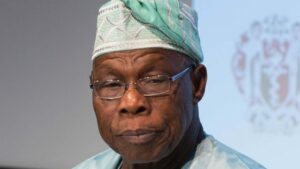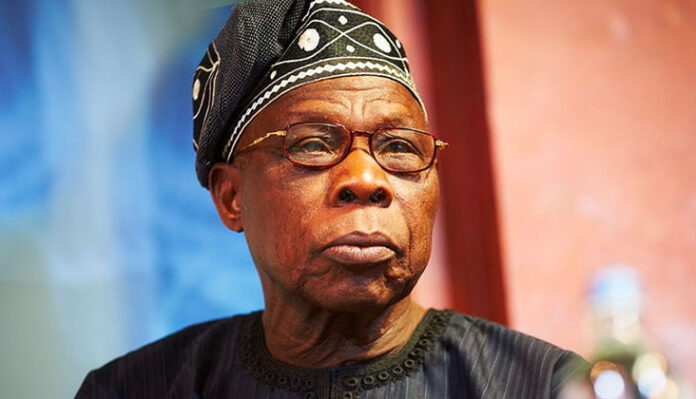Former Nigerian President Olusegun Obasanjo has urged President Bola Ahmed Tinubu to prioritize production and productivity to tackle the country’s economic challenges. Obasanjo made this call at the Paul Aje Colloquium (PAC) in Abuja, where he delivered a paper titled “Nigeria’s Development: Navigating the Way Out of the Current Economic Crisis and Insecurity.”
Obasanjo attributed Nigeria’s economic woes to the removal of fuel subsidies, the harmonization of foreign exchange markets, and the recent military coup in Niger. However, he emphasized that there is no shortcut to economic progress and that the government must focus on production and productivity to achieve economic growth.

According to Obasanjo, “The way forward is production and productivity, which belief and trust in government leadership will engender. No shortcut to economic progress but hard work and sweat.” He added that the economy does not obey orders, not even military orders, and that it requires a change of characteristics, attributes, and attitudes by the leadership at all levels to gain the confidence and trust of investors who have alternatives.
Obasanjo’s comments come as Nigeria faces significant economic challenges, including a surge in fuel prices and a depreciation of the naira. In June last year, the Tinubu administration announced the removal of fuel subsidies and the harmonization of foreign exchange markets. Since then, fuel prices have increased by 176.02% to N701.24 per liter, and the naira has dropped to N1482.81 per dollar from N465.50 per dollar on June 14, 2023.
As a result, prices of goods and services have skyrocketed, with headline and food inflation increasing to 33.69% and 40.53%, respectively. Obasanjo’s call for a focus on production and productivity is a timely reminder that economic growth requires hard work and dedication.
Obasanjo’s advice to Tinubu’s administration is a wake-up call to prioritize production and productivity to address Nigeria’s economic challenges. By focusing on these key areas, the government can restore confidence and trust in the economy and create a brighter future for Nigerians.




